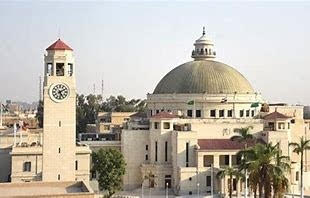It appears that the day when Egyptians would leave their homes with not a penny in their pockets is closer than we anticipated. A national campaign spearheaded by the Central Bank of Egypt (CBE) together with a number of elite banks calls just for that. The campaign, launched under the rubric “Good bye, Cash” aims at rooting the concept of electronic payment by familiarising the public with it. “Good bye, Cash” has launched awareness and advertising campaigns where a selection of large banks has contributed to advertise e-payment.
True, e-payment is no novelty for a sizable segment of Egyptians who already use debit and credit cards whether locally or when they travel outside the country. However, the majority of Egyptians who belong to the mainstream rely totally on cash to pay for goods they buy or sell, or services they receive or offer. It is these segments of Egyptians that are the main targets of the “Good bye, cash” campaign; they include merchants, craftsmen, traders, simple service providers, drivers of private transport vehicles such as taxis or tuk-tuks, and workers in small businesses or profession such as plumbers, electricians, or house painters. These segments of the population are used to receiving or giving cash in return for goods or services provided or received, and are not in the habit of dealing in e-payment.
It has been some time now since State institutions and facilities have started calling on their clients to pay their dues through e-payment methods. This has included banking transactions, social security and tax dues, government payments such as fees for driver and car licences, and has extended to the payment of electricity, gas, water, telephone and Internet bills, especially following the State policy to install prepaid electricity and water metres. In addition to that, e-payment is preferred in all touristic venues, large stores, airlines, restaurants, and other facilities. Yet people in Egypt still need cash in their daily transactions to pay for basic commodities and services, such as buying bread and groceries, goods sold on street markets or those produced through cottage industries and peddled by their producers, also for a large sector of public transport where tickets are low-priced. It requires a reformulation of the seller-buyer or service provider-consumer relationship, in order to substitute e-payment for cash.
I will not be surprised when these changes swiftly take place; our people have proved time and again their ability to deal with modern technology. We have already seen how digital technology, computers, mobile phones and the vast communications domain they bring have taken Egypt by storm, and how the Egyptian man-in-the-street who probably never acquired advanced education responded to and engaged with modern technology. I can thus expect that this sector would make the smooth transition from cash to e-payment.
The benefits of spreading the culture of e-payment in Egypt are self-evident. Not least among them is to put an end to the use of banknotes which are so abused by Egyptian users that it counts for a notoriety. More often than not, Egyptian banknotes are in such a ripped-up state, that one wonders about the extent of pollution they transmit. The generally dilapidated state of banknotes exposes indifference and nonchalance by users, not only vis-à-vis the monetary value of banknotes, but also regarding the national value they stand for. Owing to widespread public disuse, large amounts of banknotes wear out, and the need arises to print new banknotes to replace them. Egypt has been printing new notes in rates that have exceeded all international standards. Accordingly, the CBE announced a few months ago its plan to print banknotes made of plastic to withstand the rampant misuse.
While I laud the policy of “Good bye, Cash” and welcome e-payment, I still have a few concerns, some of them serious and others in a lighter sense. I wonder if baqsheesh, the word for tips, will be outdated, or will we carry a small amount of cash to cater for tips? Those who receive services in public places, restaurants or coffeeshops may of course add a supplementary amount to go for the tip; but what about those persons who exemplify masked unemployment by unofficially offering unwanted services such as valet parking where it is not needed, or porters or ‘guides’ in markets, train stations, airports and other places? They offer, no, they impose their services upon customers in order to get paid baqsheesh. Will this category disappear? Or will those who belong to it be provided with e-payment machines? Or should we keep in our pockets what would fulfil their desire? This applies to beggars too, what are we to do with them?
Will we say goodbye to pocket money for children? Will our children or grandchildren go to school carrying electronic payment cards to buy snacks or refreshments from the canteen? Will they insert the password for their cards when needed? Will they keep their passwords private?
On another note, will the day come when it would be frowned upon for someone to get out of his or her pocket the amount of EGP100 or EGP200 in banknotes to pay for a good or service, as occurs with us Egyptians when we travel abroad? Will such behaviour be looked upon with apprehension and amazement, as “unconventional”? Will his or her integrity be doubted for failing to present an e-payment card to pay?
Egypt is undoubtedly embarking on a new era that will impose new measures on the transactions carried out among members of its society. It is an inevitable change that cannot be dismissed or ejected.
Watani International
3 October 2020










